
Latest Coronavirus Disease COVID 19 News and Research
New moms behind bars get help from someone who’s been there
Nine years ago, Nina Porter gave birth in a hospital bed with one of her ankles chained to the frame.
Black doctors work to make coronavirus testing more equitable
When the coronavirus arrived in Philadelphia in March, Dr. Ala Stanford hunkered down at home with her husband and kids.
IVI hosts virtual State Forum to promote partnership and equity in global health
The International Vaccine Institute (IVI) hosted a virtual State Forum today to advocate for multilateral cooperation through vaccine diplomacy.
Researchers launch new clinical trial to investigate role of vitamin D against COVID-19
Researchers from Queen Mary University of London, funded by Barts Charity, have launched a new clinical trial to investigate whether taking vitamin D could protect people from COVID-19
Study offers a better understanding of protective antibodies induced by coronavirus
As vaccine trials progress and public health officials brace for a rise in COVID-19 cases, understanding how the body defends itself from SARS-CoV-2 infection is essential.
New study details how Michigan nursing homes limited the spread of coronavirus
Seven months ago, the nation first heard of a surge of COVID-19 deaths in a Washington nursing home – an early warning sign of how the coronavirus could rip through such facilities.
SARS-CoV-2 antibodies and COVID symptoms can last at least 3 months
Recent research published as a preprint on the medRxiv preprint server, Elizabeth T. Cirulli et al., studies the self-reported short and long-term symptoms in a large general adult population cohort.
Scientists explain why some COVID-19 patients develop neurological symptoms
Now, a new study published on the preprint server bioRxiv sheds light on the mechanism behind brain involvement in the COVID-19 pandemic. A team of researchers at the Krembil Research Institute and the University of Toronto in Canada aimed to understand further the potential mechanisms underlying SARS-CoV-2 tropism for brain vasculature to see how infection occurs in the brain.
Zinc deficiency linked to poor COVID-19 outcomes
A team of researchers from various universities and institutes in Spain recently published a paper on the preprint server medRxiv,* in which they hypothesize that serum zinc levels have a significant influence on COVID-19 progression and thus may be a useful biomarker in predicting severe disease in early stages of COVID-19 infection.
Why blood type O might lower risk for SARS-CoV-2 infection
The author hypothesizes that people with non-O blood groups may have highest contact with the SARS-CoV-2 virus via the formation of in intermediate structure, resulting in possibly higher infection rates and more severe symptoms.
Genoscience Pharma's GNS561 shows potential against SARS-CoV-2 in vitro
A new study published on the preprint server bioRxiv in October 2020 shows that a combination of a new compound GNS561 and remdesivir act synergistically against severe acute respiratory syndrome coronavirus 2 (SARS-CoV-2). This suggests that autophagy inhibitors could be an alternative strategy for SARS-CoV-2 infection.
Suramin shows promise as COVID-19 treatment
A new study published on the preprint server bioRxiv reports the elucidation of the mechanism of inhibition of SARS-CoV-2 by a non-nucleotide inhibitor called suramin. This is the first such compound to be shown to have such activity and shows promise for use as a repurposed drug against COVID-19.
Integrin b3 and ACE2 linked by short linear motifs enabling endocytosis and autophagy of SARS-CoV-2
A new study by Uppsala University researchers published on the preprint server bioRxiv in October 2020 shows possible links between the angiotensin-converting enzyme 2 (ACE2) host cell receptors for severe acute respiratory syndrome coronavirus 2 (SARS-CoV-2) and the entry of viral particles into the cell via endocytosis and autophagy.
Report: Nearly two million babies are stillborn annually
Nearly two million babies are stillborn every year, with 84 per cent of cases occurring in low- and lower middle-income countries, says an 8 October report by WHO, UNICEF and partners.
Sub-second heat inactivation of coronavirus
Three coronaviruses (CoVs) have caused global outbreaks within the past 20 years, and with the COVID19 pandemic caused by severe acute respiratory syndrome coronavirus 2 (SARS-CoV-2) still ongoing, methods that can rapidly inactivate these viruses can play critical roles in ensuring public safety and safeguarding personal health.
Italian research shows low transmission of SARS-CoV-2 within schools
A team of scientists from Italy has recently conducted a study to investigate the incidence of severe acute respiratory syndrome coronavirus 2 (SARS-CoV-2) infection among students attending Italian schools after reopening after COVID-19 lockdown. The findings reveal that the transmission of SARS-CoV-2 is low among younger students. The study is published on the medRxiv preprint server.
Universal facemask use could prevent hundreds of thousands of COVID-19 deaths
The Institute for Health Metrics and Evaluation (IHME) COVID-19 Forecasting team has advised that universal mask-wearing during the coronavirus disease 2019 (COVID-19) pandemic could save hundreds of thousands of lives and delay the need for mitigation measures such as stay-at-home policies.
Newly identified coronavirus epitopes induce robust antibody responses
Researchers at the University of Wisconsin-Madison have conducted a study showing that infection with severe acute respiratory syndrome coronavirus 2 (SARS-C0V-2) triggers robust immune responses to epitopes across the full viral proteome.
Optimizing allocation of future COVID-19 vaccine can double effectiveness
In anticipation of coronavirus disease (COVID-19) vaccine deployment, the Australian and US researchers utilized an age-structured mathematical model to appraise the potential benefits of optimizing age-specific dose allocation for suppressing SARS-CoV-2 transmission – and reaffirmed the notion that vaccination alone may be inadequate to achieve herd immunity in some settings. The study is currently available on the medRxiv* preprint server.
Nasal spray COVID-19 vaccine shows promising results in mice
With promising vaccines comes a new candidate that has shown potent pre-clinical immune responses. The vaccine, developed by scientists at the University of Alabama at Birmingham (UAB), induced a potent T-cell response at the mucus layer of the lungs, including killer CD8+ T-cells, which can recognize and kill virally infected cells.


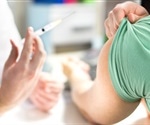
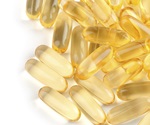
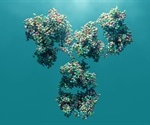

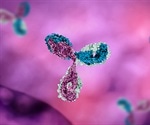
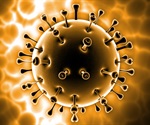



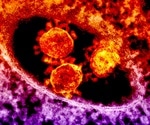
_60a4c7006eb8463e881ae9277bb21fca-150x125.jpg)
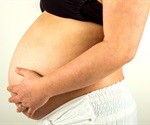
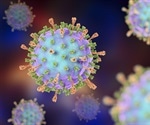




_f92ad822d17b40c5853c8fe51e099ee2-150x125.jpg)
































No hay comentarios:
Publicar un comentario